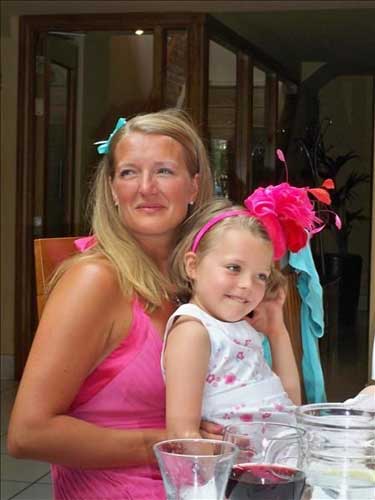Wealth Check: Part-time work could be the right move for full-time mum

Kate Tym, 43, is a freelance poet and full-time mother. She writes poems for weddings and is looking for ways to boost her business and her income.
Before having children, Kate was a commissioning editor earning £30,000 a year. "Ten years on, I've lost most of my contacts in publishing, but with three children and only my husband's salary, it's often hard making ends meet. I want to know how to bring more money in, stop some going out and make sure our mortgage is appropriate."
Case notes
Salary: Earns approximately £3,000 a year. Her husband, Will, earns £18,000 as a self-employed plasterer
Monthly outgoings: £1,150 on bills, food and essentials, £390 on children's activities, £170 on life insurance and pensions, £530 on mortgage
Savings: Between £500 – £1,000 in a savings account and £1,000 in a current account for mortgage payments and unforeseen outgoings
Debts: The Tyms owe about £900 in bank overdrafts
Advice this week is given by financial advisors Darius McDermott of Chelsea Financial Services, Jason Witcombe of Evolve Financial Planning and David Brunning of Brunning Newman Houghton Ltd...
Boosting income
All three experts agree Kate must boost her income in order to achieve financial security for her family. Jason Witcombe says Kate should look into part-time employed work rather than being completely self-employed. He suggests she offer her editing or proof-reading services, but says even employment not linked to her preferred vocation will "really help out the finances and give Kate the confidence to build up her income from freelance ventures".
David Brunning says Kate must utilise the internet to market her business. "Kate should invest in specialist advice to ensure her website is top of search engine listings. She should check what her competition charges and think about working with a wedding service company," Brunning says.
He adds that Kate should write for funerals and memorials, too, as most have readings. "Weddings peak in the summer, but funerals in the winter, thus spreading work throughout the year," Brunning says.
Darius McDermott says: "The Tyms may want to consider a role change as Kate used to earn a decent salary commissioning – almost twice their current income."
Mortgage
The Tyms have a £100,000 mortgage with Northern Rock on their £150,000 flat. It's arranged on a 60 per cent repayment and 40 per cent interest basis, but Kate would like to change this to 100 per cent repayment. Brunning says Kate should contact Northern Rock to see what their terms would be for this.
Get a free fractional share worth up to £100.
Capital at risk.
Terms and conditions apply.
ADVERTISEMENT
Get a free fractional share worth up to £100.
Capital at risk.
Terms and conditions apply.
ADVERTISEMENT
He adds that a fixed-rate mortgage could be a good idea: "Looking at the Tyms' expenditure and Kate's variable income, the ability to budget their mortgage payments for the next two to three years may be more important than getting the lowest possible variable rate."
Witcombe says Kate should check what their rate of interest will revert to in September, when due for renewal. "We're in a strange situation at the moment where many standard variable rates are actually lower than initial discounted or fixed rates." He warns that Northern Rock's standard variable rate is "not nearly as generous as some other lenders".
McDermott says in September the Tyms will have the opportunity to look for a better rate on their mortgage, and advises the best rates being offered are Alliance and Leicester two-year fixed (3.19 per cent) and a five-year fixed from Ipswich BS (4.25 per cent).
"For the five-year mortgage, Ipswich is demanding mortgagees have 40 per cent of equity in the property – the Tyms (33 per cent equity) must find the extra equity," McDermott says.
Future planning
Kate currently hopes to have a pension which will allow her a yearly income of £50,000 and hopes she and husband Will can retire at the age of 60.
McDermott says although the Tyms are putting money towards their pension, this is ambitious considering their income and savings. Witcombe advises they put more towards saving: "As Will is self-employed, the Tyms must make sure that, if all else fails, they keep sufficient cash to pay his tax bills."
Brunning advises the Tyms build up three months' bills in a cash ISA, and look for more cost-effective household utility packages. "It's a fiercely competitive market and they could make savings by packaging their mobile phones, landline phones and the internet with one provider." He adds the Tyms should seek advice on their longer-term savings plans. "Once Kate has brought her income up, she and Will should review their expenditure and long-term savings to see what they can realistically set aside.
"It's a compromise between spending now and enjoying a comfortable retirement... everything's a compromise?"
Join our commenting forum
Join thought-provoking conversations, follow other Independent readers and see their replies
Comments
Bookmark popover
Removed from bookmarks